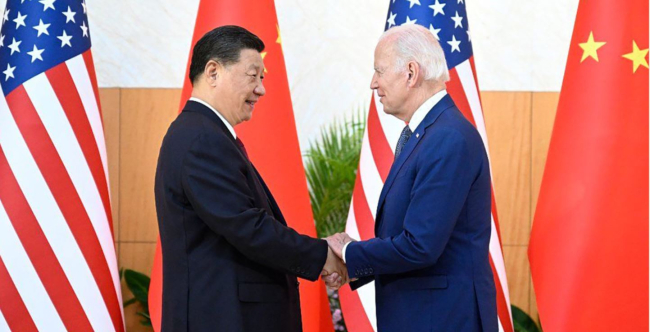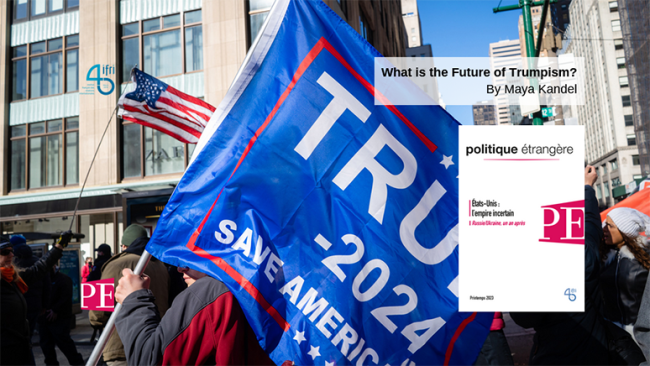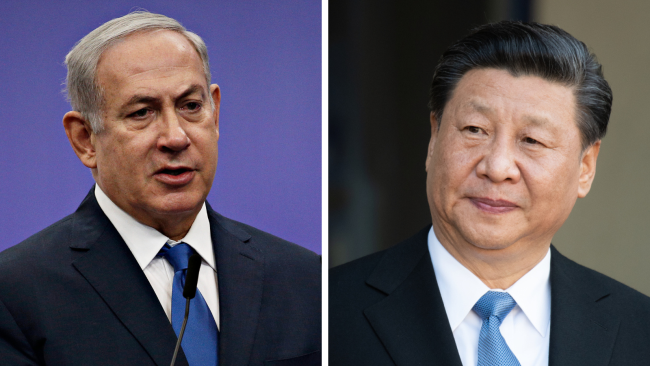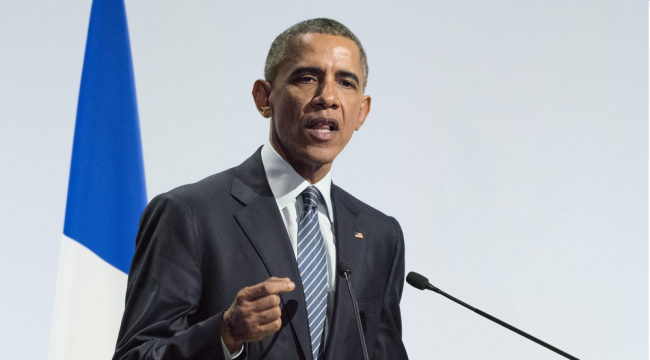The Ambitions of the Islamic Republic of Iran in the Pacific
In January 2023, the Iranian Navy staged a show of force near the Australian Exclusive Economic Zone (EEZ) amid growing tensions between Tehran and Canberra.


It’s not just TikTok: French also warn against WhatsApp, Instagram
In a typically French move, France's top lawmakers are refusing to side with the United States and single out China's TikTok.
The world’s powers are engaged in a fierce technological race. This is the balance of forces
The US struggles to retain its supremacy, China catches up and overtakes the leader in many areas while the EU is falling behind.
What Is the Future of Trumpism?
Donald Trump's presidency allowed the most radical wing of the Republicans to seize hold of the party.

South Korea and IPEF: Rationale, Objectives and the Implications for Partners and Neighbors
As a key manufacturer of high-end technology components critical to the sustainability of the Fourth Industrial Revolution, South Korea is essential in any effort to rebuild a resilient global supply chain but also to the promotion of a clean economy. South Korea can thus contribute to two of the pillars of IPEF (Indo-Pacific Economic Framework), specially to pillars II and III (supply-chain resilience and a clean economy).


Semiconductors: how the United States is suffocating China
The United States are ramping up its efforts to deny China access to the most advanced semiconductors powering smartphones, personal computers and the latest generation of supercomputers.
(Replay) Conférence navale de Paris : the return of naval combat
A conference organized by Ifri and the French Navy with British, French and American speakers to reflect on the evolution of naval strategy and the impact of new technologies on navies.
Digital Sovereignty: European Policies, American Dilemmas
European digital sovereignty has been made a priority by Ursula von der Leyen’s European Commission. Due to the privileged position of American companies in the European market, Brussels’ efforts towards digital sovereignty (on privacy, antitrust, data sovereignty, etc.) are closely scrutinized by American policymakers.
Israel and China, a Test of Loyalty for the United States?
Like the Gulf monarchies, Israel has strengthened its economic cooperation with China since Xi Jinping came to power in 2013, leading to an influx of Chinese capital, whether in Tel Aviv's high-tech sector or in Israel's port infrastructure.
Hillary Clinton's Email "Scandal": How Will It Affect the Election?
With the Democratic Presidential Nomination in sight, Hillary Clinton must still contend with a continuous conversation about her email practices. How will this scandal, or non-scandal, affect the presidential race yet to come? A look at the perspectives of the American constituency and pending investigations may predict Clinton's likely future... and the future of the American presidency.
États-Unis : La Cour suprême en balance
The first few months of this year have been eventful and dramatic for legal and judicial matters on either sides of the Atlantic: while France renewed a third of its magistrates - which has gone largely unnoticed - US Supreme Court Justice Antonin Scalia's sudden death caused a political earthquake.

Hybrid Warfare in the Strategic Spectrum: an Historical Assessment
"Hybrid Warfare" is a fashionable concept, but in order fo it to be really relevant, it has to be visualized within the whole strategic spectrum.
Forces terrestres et réassurance : Quelles options pour l'Alliance ?
Born into the Cold War, the very notion of ‘reassurance’ was revived in the wake of the 2014 Ukraine crisis as NATO had to label the measures destined to reassert the lasting relevance of collective defense towards its member states.
China vs. USA: After South China Sea, the Arctic as a Second Act
The focus on the power confrontation between China and the U.S. has for a while been directed towards the South China Sea, but a focus should be given to the Arctic region, where the second act is already ongoing.
Après Paris et San Bernardino, le terrorisme dans le débat américain
Both the Paris attacks and the San Bernardino shooting reopened the wound of terrorism in the United States. Although President Obama has not shifted his stance or his strategy on the issue, public opinion is worried and populist rhetoric is ever more present in the campaign for the 2016 election.

War’s Indirection or the Return of the Limited War
Over the last few years both the United States and Russia seem to have changed their conception of how to deploy force.
U.S.-Russian Relations: The Path Ahead after the Crisis
CSIS expert Jeff Mankoff explains the reasons of the crisis in Ukraine, and how the U.S. should try to reestablish a more stable situation in central Europe, mixing containment and engagement of the Russian partner.
The Democratic Party Under Obama and Beyond
The Democratic Party relies today on very different segments of the U.S. electorate, making it impossible for a Democratic President to sustain long-term public support. In the context of the current campaign, Prof. Nicol Rae provides an analysis of the Party's electoral strategy, since 2008 and beyond 2012.
Jewish Activism in the United States: Is J Street a Passing Phenomenon?
Created in the Fall of 2008, the J Street movement seeks to represent those in the U.S. Jewish community who would like Washington to be more active in supporting a lasting peace in the Middle-East.
Support independent French research
Ifri, a foundation recognized as being of public utility, relies largely on private donors – companies and individuals – to guarantee its sustainability and intellectual independence. Through their funding, donors help maintain the Institute's position among the world's leading think tanks. By benefiting from an internationally recognized network and expertise, donors refine their understanding of geopolitical risk and its consequences on global politics and the economy. In 2024, Ifri will support more than 70 French and foreign companies and organizations.

















